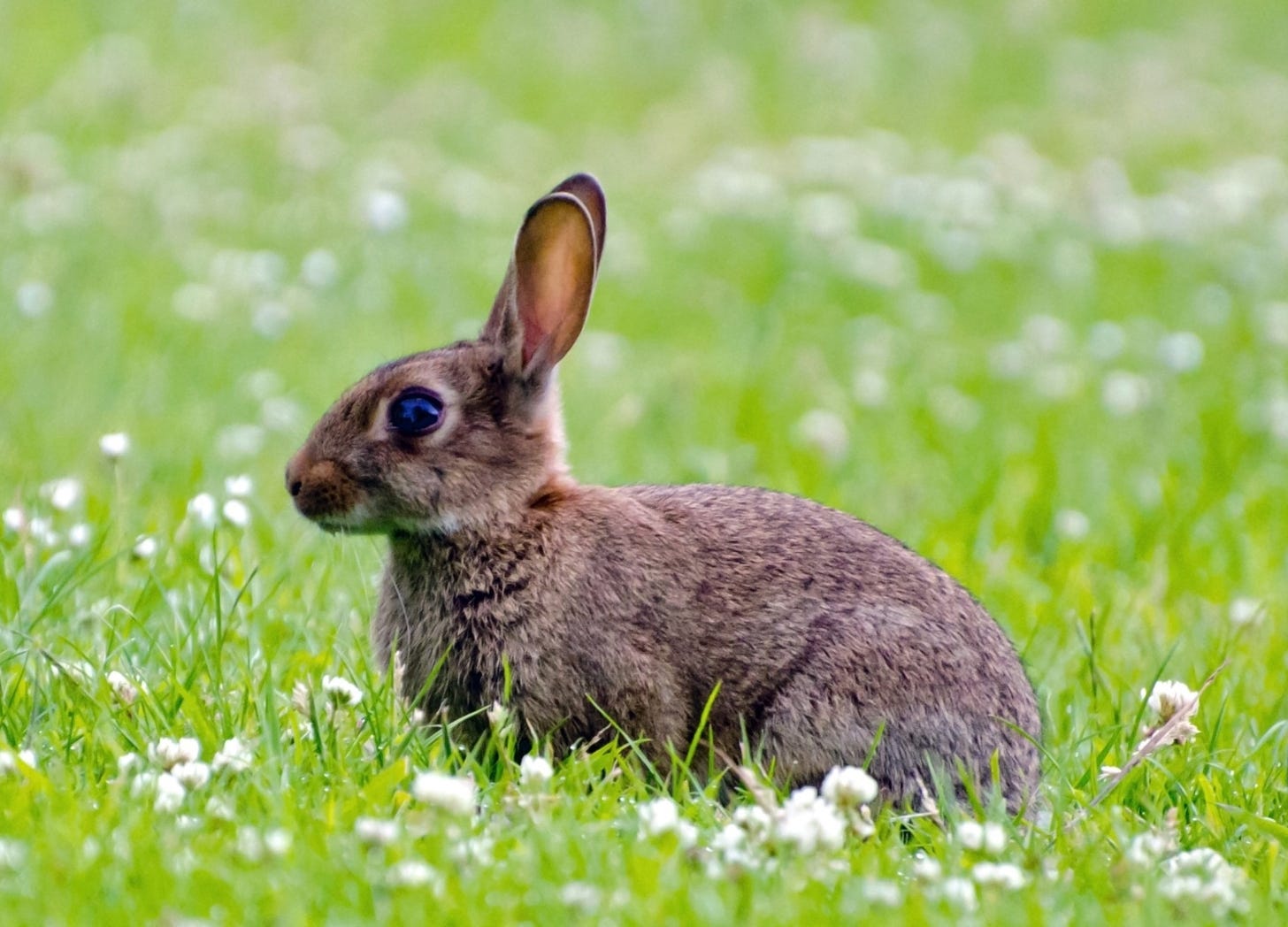💉 Polio refuses to wither away; At least the world is getting hotter; No plastic news is good news
#573 | The rainforest that remembers; The misinformation that lingers; The Danish zoo that hungers
Hello, and welcome back to The Kable for the most exhilarating catching up with most things life sciences around the world, a world riven by climate change, conflict, economic injustice, and disease. So much disease.
Like in China, where an outbreak of chikungunya, with over 7,000 cases earlier this week itself, is running riot. Or in Cambodia, which reported its 14th human case of bird flu this year. Or in Vietnam, where a continuing swine fever outbreak is now threatening the global food supply chain. In Europe, it is the West Nile fever that is gaining ground rapidly. In America, a growing cluster of Legionnaires' disease was bad enough. But in true Murica fashion, they also had dozens of people in Florida down with E.coli thanks to drinking raw milk.
Over in Africa, the ongoing mpox outbreak continues to grow even as the downward trend from two weeks ago persists. In Somalia, however, it is drought that is proving to be the bigger danger.
Across parts of Asia, rain - and subsequent flooding - is what is causing schools to shut.
Maybe segue to something a little more upbeat now? Okay, the Gates Foundation is pledging $2.5 billion in research towards women's health. The Asian Development Bank (ADB) and the Drugs for Neglected Diseases initiative (DNDi) have partnered to further work on neglected diseases in the APAC region. Two of South Korea's leading labs - the Korea Disease Control and Prevention Agency (KDCA) and the International Vaccine Institute (IVI) - have joined CEPI's global vaccine testing network.
Elsewhere, the WHO this week added three more regulators from Canada, Japan, and the UK to its global list of authorities that meet the highest regulatory standards. Ordinarily, we would have said this good news but this list also includes the US. The same country that this week cancelled funding for mRNA vaccine research and wants to rename a UN aviation program because it contains the triggering word "gender."
Speaking of the US, a new preprint paper says bird flu in dairy farms across the US might be air-borne after all. And another recently published paper says a flu drug with a compound found in chocolate offers better protection than the best-in-class antivirals against a bunch of flu strains, including bird flu and swine flu. We always knew chocolate is the cure for everything. Heck, if you eat enough chocolate, you can even permanently cure diabetes.
This story may not seem like a fit for The Kable, but how could we not tell you that a zoo in Denmark is asking for "donations" of your small pets to feed their predators?
In Gaza, hunger was already bad. So bad that at least 100 people died of hunger in July alone. And the UN says 12,000 children have acute malnutrition. And to make things really, really worse, people there are getting increasingly thirsty.
And finally, in Israel, even crocodiles will be treated inhumanely and then killed. As long as they are defenceless.
Before we dive into the stories of the week…
The Kable is proud to be Editorial Partner to Pharmaconex—Africa’s most influential hub for pharmaceutical manufacturing across the MEA region.
Like The Kable, Pharmaconex puts the spotlight on the pharma story in Africa and is committed to building a thriving community for industry leaders, innovators, and changemakers to share knowledge, forge partnerships, and move the sector forward.
Register now for free access to the event—and to receive your digital copy of Emerging Frontiers, our annual report on Africa’s biopharma future, launching this September at Pharmaconex Egypt.
Stories Of The Week
Saying goodbye to polio? Unlikely in this lifetime. More than 70 years ago, Jonas Salk reportedly injected himself with an as-yet-unproven vaccine to set us on the route to eradication of polio. The Global Polio Eradication Initiative (GPEI), led by WHO, UNICEF, and other health heavyweights, has spent the better part of four decades trying to wipe polio off the map. And while it’s delivered undeniable wins (20 million people spared paralysis), its last-mile strategy is under fire. A new AP investigation, backed by internal WHO documents and expert interviews, pulls back the curtain on what’s going wrong, and why no one seems willing to change course. Evidently, WHO and partners seem glued to a broken strategy, riddled with falsified records, untrained vaccinators, and blind faith in an oral vaccine that sometimes causes the very disease it’s meant to stop.
(AP)
The heat? It's just getting started. The planet just clocked its third-hottest July on record, and it’s not cooling down anytime soon. From Canada’s record wildfires to 50°C scorcher days across Türkiye, Iran, and Japan, extreme heat is slamming nearly every region with deadly force. The World Meteorological Organization’s new report calls it a full-blown public health emergency, especially in dense, overheated cities. Despite the well-worn “silent killer” label, there’s nothing subtle about half a million heat-related deaths a year. The sad part is that we have at least some of the tools we need in the form of early warning systems, data, and even action plans to prevent this. But so far, policy hasn’t kept pace with the thermometer.
(WMO)
Bottom line
Life in plastic. A new Lancet review slams plastic pollution as a trillion-dollar public health disaster, linking it to everything from miscarriage and obesity to stroke and cancer. With plastic production set to triple by 2060 and microplastics showing up in our organs, researchers say it’s past time for global policy, not just better recycling slogans. But we already know how this story ends, don't we? Like with lead and air pollution, the damage is preventable, but only if policymakers stop dragging their feet. As delegates regroup in Geneva, the ask isn’t revolutionary: regulate the chemicals, rein in production, and treat plastic not just as waste, but as a vector of disease. Anything less, and we’ll be choking on the consequences.
(The Lancet)
Burn, baby, burn. A new study shows that burned Amazon forests in Brazil stay up to 2.6°C hotter than untouched areas for at least 30 years. That lingering heat slows regeneration, warps canopy structure, and torpedoes the forest’s ability to store carbon. Unlike savannahs, the Amazon wasn’t built to bounce back from fire, and now, many scorched patches may never fully recover without active restoration. And fire damage doesn’t just hurt biodiversity, it breaks the carbon bank. Meaning climate strategies that count on tropical forests to pull their weight need to start factoring in long-term thermal scars. Because "leave it to nature" won’t cut it anymore. Because Nature has had enough of parasites like us.
(Environmental Research Letters)
Long reads
R0 and behold. From measles to MERS, infectious diseases vary wildly in how fast they spread and how lethal they are. This piece in The Conversation breaks it all down for us. And yes, Covid caused global chaos but its R0 is nothing compared to measles.
(The Conversation)
America's viral export: misinformation. According to this piece in The Lancet, the US isn’t just exporting vaccines. It's also exporting the distrust that undermines them. Vaccine misinformation, much of it incubated in the US and spread via superspreader accounts like their health secretary's, has become a global public health liability, eroding confidence from West Africa to Eastern Europe. Researchers say it’s time for a coordinated global response: protect scientific institutions from political meddling, regulate platforms with binding rules, and stop letting Silicon Valley shape public health policy by algorithm.
(The Lancet)
Oh, and Gopal Nair doesn't want you to see this.





Never argue with an idiot. They drag you down to their level then beat you with experience.
Respiratory 'virus' only exist in computer programs!!!
Never ever shown to be contagious 😭